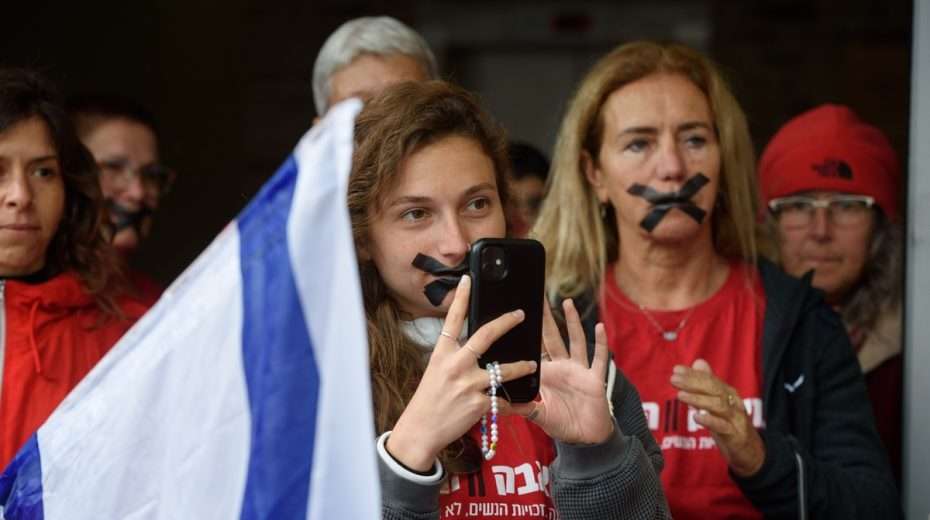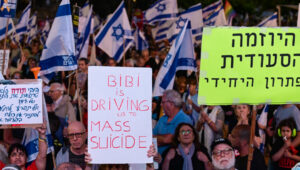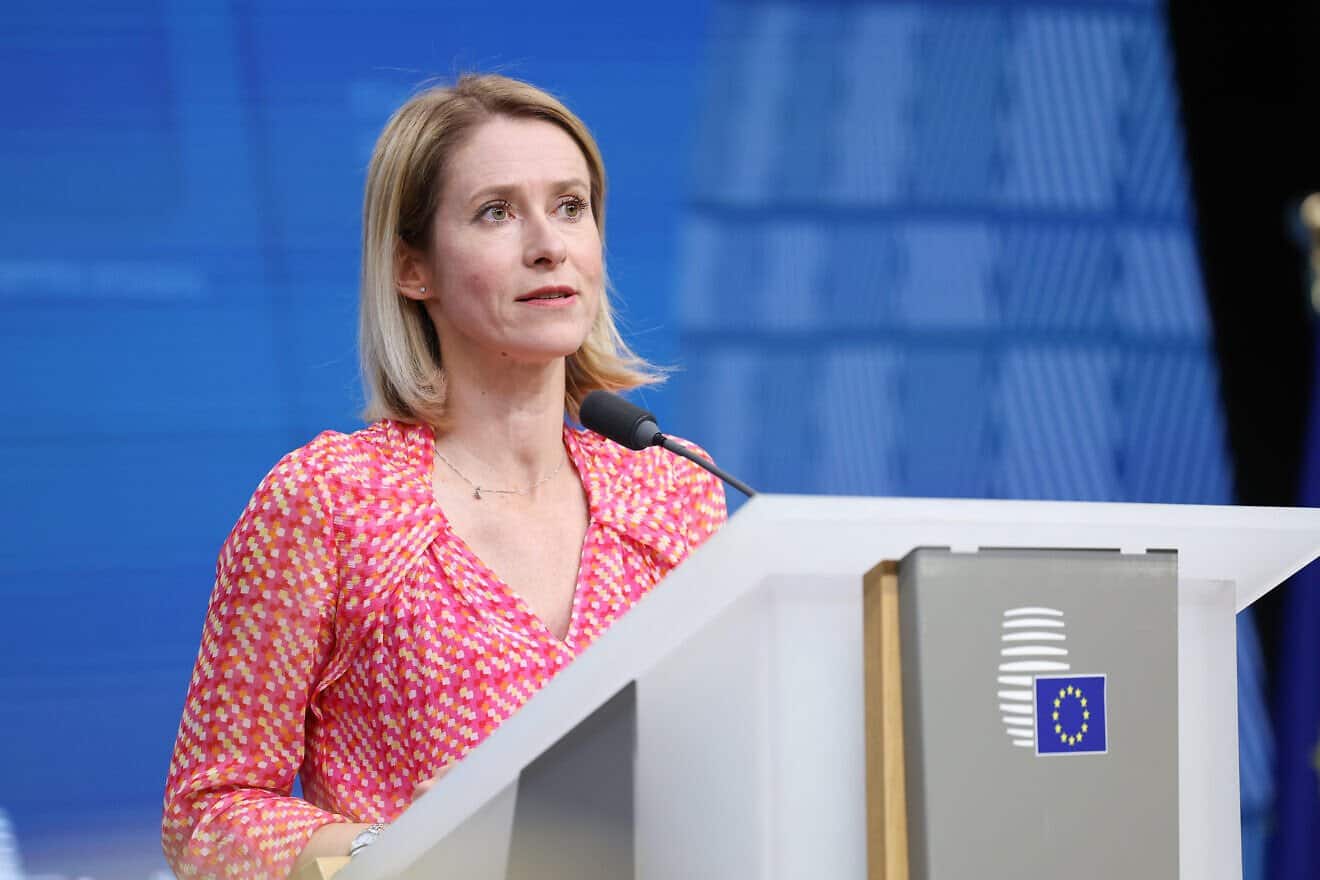In the writings of the sages in the Mishnah it was said, “Thanks to righteous women, the children of Israel were redeemed from Egypt.”
And despite this, when we sit every year on the eve of Passover, and read the Haggadah that I know so well since my childhood, I do not find a single mention of any of these wonderful women.
So here they are:
Yocheved carried Moses in womb for 9 months despite the mandate to throw every baby boy into the Nile River. She went through the uncertainty. “Will it be a boy?” And if so, what would she do? How would she hand over her baby to die? But she completed her pregnancy with great faith in her heart.
Pua and Shifra, the two wonderful midwives who took care of Yocheved and the baby during the birth. And despite the great risk involved, they did not announce that a son was born, but bravely hid the news.
Amazing Miriam, who, despite being still a young girl, cared wonderfully and maturely for her brother floating in his basket on the Nile river, and with great wisdom knew how to preserve him and even make sure that he grew up in his early years in the arms of his mother Yocheved.
Pharaoh’s daughter, known in Jewish interpretations as “Batya,” who rescued baby Moses and raised him as a prince in her home.
And, of course, Moses’ wife Zipporah, who helped keep Moses on the right path later on.
It was thanks to these incredible women that the first great miracle happened, the rise of one to lead the Israelites out of slavery into freedom. And in the rabbis’ Passover liturgy that we read every year, not a single word to honor them! They were excluded from the ancient national traditional Exodus narrative. And this needs to be addressed and corrected.
The Bible, on the other hand, does emphasize and honor women, giving them a very significant place at the core of the family and the core of society.
It is not for nothing that this discussion comes up again and again even nowadays. Correcting the exclusion of women has been on the agenda in recent years. Today in Israel many women are afraid they might lose some of the rights and equality that they have gained with much effort. The discourse in the ultra-Orthodox world, for example, is that the woman’s role since the days of Eve is to be an “Ezer k’negdo”, a “helpmate counterpart” to man (Genesis 2:18). But maybe it’s time to have a discussion and understand what this enigmatic phrase in Genesis really means? Ignoring the issue is only making women feel like their backs are up against a wall.
In the Passover Haggadah, “4 sons” are allegorically mentioned:
- one wise,
- one evil/rebellious,
- one simple, and
- one who “doesn’t even know how to ask.”
The four of them represent the types of people that exist among us.
In favor of the “4 daughters” and “4 mothers”
In the Israeli women’s discourse today, during the days of the greatest protest in the modern history of Israel, there is now a new comparison talking about 4 parallel “daughters” also representing the diversity of women in Israel. The diversity speaks to the many gradations of opinion like the colors of the rainbow. And even the women themselves are divided here over their rights. There is no general female consensus on how the female sector should be conducted. There is a dispute about what is right and what is allowed and what is not.
We open for you a window onto current Israeli attitudes. Here is a text written by the well-known Israeli writer Yehudit Rotem, who grew up and was educated in the ultra-Orthodox world. She took these “4 sons” and how they are described in the Passover Haggadah text, and then interpreted them as female characters that exist today in Israeli society:
The wise daughter – what does she say? “What are the protests and riots and the war on the laws of justice and freedom that you have taken upon yourselves?”
And we tell her that we won’t stop protesting even after the verdict, but will continue until we triumph.
The evil/rebellious daughter – What does she say? “What is this protest and uprising!”
And we tell her, “For this we will finally come out of slavery to freedom. From darkness to light. We and not you, the loss will be all yours, that you are not redeemed with us.”
The simple daughter – what does she say? “What are all the flags and drums and announcements and speeches?”
And you will tell her: “With courage, with patriotism, with determination and dedication, we will make sure our nation does not become dictatorial; we will prevent violence against women, and prevent violation of our basic rights.”
The daughter who doesn’t know how to ask – they told her: “You shall tell your daughter: ‘Thanks to us, the women, the whole country will come out of darkness into light… From shame and anxiety to joy and good spirits. And we will live together as equals.'”
Is this really such an extreme request to make?
















The woman in the Bible I respect most is Rebecca. She is often ridiculed as a deceiver, but such a view is a serious error. She was courageous enough to inquire of the Lord directly about the twins in her womb. And the Lord revealed His plan to her- her alone. He never spoke to Isaac about His choice of Jacob. She had to carry the burden for decades until Jacob received Isaac’s blessings. Without her commitment to the Lord’s will, the patriarchs could not have been established. She never sought her own honour or recognition. Today, Yeshua similarly leads us not to seek own recognition but to walk with Him as nameless, faceless and faithful followers.
Certainly these women should be honoured in the Passover celebrations. At its fulfilment the women again feature prominently at the cross and at the tomb.
Ruth and Naomi are honoured at Shavuot along with Boaz. Daughters and maidservants are included in the anointing. (Joel 2:28)
Miriam (Mary) is to be honoured at Tabernacles where God’s presence and provision are celebrated. She rejoiced in Messiah before she gave Him birth. (Luke 1:47) Yet suffered ignominy during His life as Israel doubted her testimony. (John 8:41) She, like the disciples, had to wait until the resurrection, ascension and empowering of the Holy Spirit before their faith was confirmed.
The Feast of Tabernacles is the right time to celebrate Immanuel/Christ’s birth.